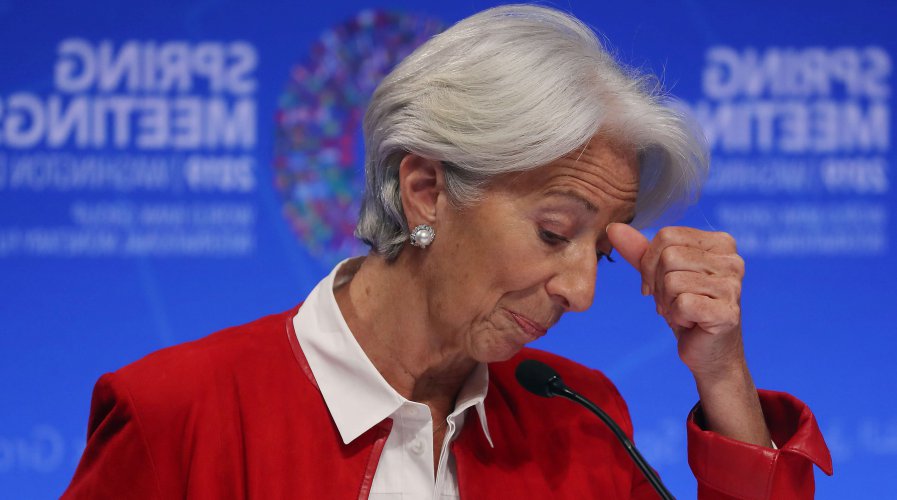
Banks really need to work on their digital offerings. Source: Mark Wilson/Getty Images/AFP
IMF MD Lagarde says banks have to adapt to survive, or disappear
BANKS across the world seem to be struggling with digital transformation.
It’s not because they lack the financial resources or the will to digitally transform. Banks really have just three basic yet critical obstacles that they need to overcome before they re-invent themselves:
First, being custodians of sensitive customer data, they have a duty to be cautious about how they store, access, use, and manage that data — and there are laws to make sure they do right by their customers.
Next, banks struggle with their own legacy systems. This is definitely their own doing and might eventually lead to their downfall.
The reality is that banks have been digitizing themselves for decades, as a result of which, they’re stuck with systems that are coded in some of the oldest programming languages — and although these are hard to maintain and almost impossible to integrate with other systems — they’re reliable and support existing operations quite well.
The final obstacle, however, is talent. Be it the US, EU, or the APAC, technology talent is in short supply. This means banks must find a way to turbocharge existing IT teams while trying to recruit new talent.
Overcoming these obstacles isn’t tough when you think about it, but it does require careful planning. However, given the rate at which neo-banks, challenger banks, and fintech companies are winning over customers, banks might not have as much time as they initially thought.
At a recent panel discussion at the International Monetary Fund’s (IMF) HQ on Money and Payments in the Digital Age, IMF Managing Director and Chairperson Christine Lagarde made an important observation about banks in the payment services industry.
“The role of banks as providers of payment services is being challenged, and banks are going to have to adapt to survive, or possibly disappear,” Lagarde said.
True, in context, Lagarde’s comment only extends to the function of banks as providers of payment services, but the reality is, experts across the world echo her voice when it comes to any banking service that is customer-facing.
Take the private banking function for example. Over the past decades, banks have been nurturing relationships with High Net Worth (HNW) and Ultra High Net Worth (UHNW) clients to help them manage their wealth — earning a hefty fee in the bargain.
In recent years, however, as the younger generations inherit the family’s wealth, a pronounced shift towards digital services is noticed. It’s why leading wealth managers such as UBS, Citi, and JP Morgan have taken big steps towards digital in the past few years.
At Lagarde’s panel discussion, JP Morgan Chase Consumer and Community Banking Segment CFO Sarah Youngwood highlighted her bank’s futuristic thinking — launching the JPM Coin to make core banking transactions simpler.
Of course, it doesn’t have a direct relation with private banking, but it does showcase that the company is thinking and acting on the technologies of the future.
In parts of the world where banks offering premium or private banking services to the HNW and UHNW market haven’t been able to keep up, customers have moved to digital-native platforms that offer a trio of low annual maintenance fees, transparent advice that isn’t driven by third-party commissions, and better control of the investment portfolio over digital platforms.
According to the 2018 Capgemini World Wealth Report, the slow pace of change in the traditional banking industry is creating an excellent opportunity for big tech disruptors such as Google, Amazon, Apple, and Alibaba, among others.
These companies already have their own payments services — in fact, in Asia, these platforms are quickly taking control of the payments market. Google Pay, for example, is betting big on India, while Alibaba’s Alipay is already a market leading payments company in China.
Obviously, this ties back to the point Lagarde made. There’s no denying that banks have a few obstacles to overcome in order to transform themselves digitally, but they need to accelerate that journey now instead of spending too much time deliberating.
The old adage “slow and steady wins the race” might not hold true for the banking industry since it’s a whole new playing field for them and their competitors have an advantage — they’re digital natives.
READ MORE
- Strategies for Democratizing GenAI
- The criticality of endpoint management in cybersecurity and operations
- Ethical AI: The renewed importance of safeguarding data and customer privacy in Generative AI applications
- How Japan balances AI-driven opportunities with cybersecurity needs
- Deploying SASE: Benchmarking your approach






